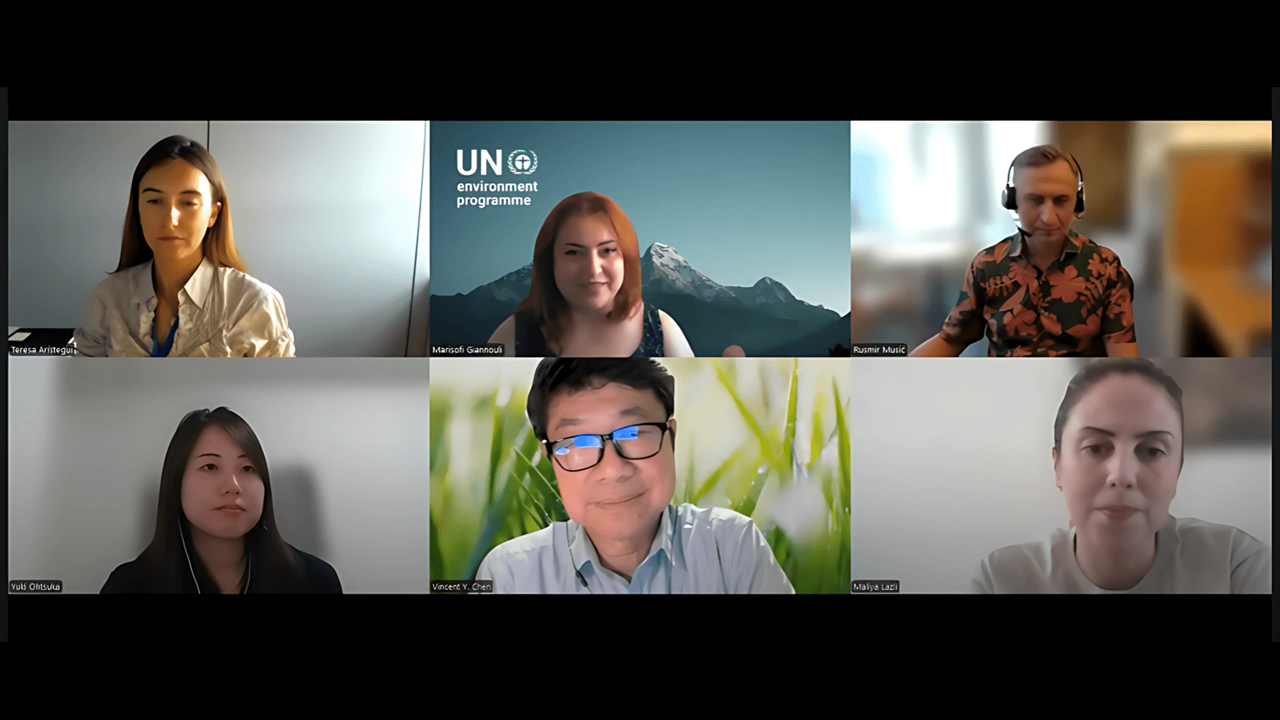The Global Alliance for Buildings and Construction (GlobalABC) and the UN Environment Programme (UNEP) Cool Coalition convened the third COP30 Buildings and Cooling Pavilion webinar, offering strategic updates and outlining engagement opportunities ahead of the 80th UN General Assembly.
The session, moderated by UNEP Cool Coalition Communications Lead Marisofi Giannouli, framed the Pavilion as a collaborative platform to emphasize the critical role of the built environment and sustainable cooling in climate mitigation and adaptation. With the COP30 official thematic days confirmed, speakers highlighted the need for unified messaging and inclusive narratives that reflect local realities.
Teresa Arístegui, Policy Officer at the European Commission’s DG Energy, delivered the keynote, reaffirming the EU’s commitment to the 1.5°C goal through enhanced Nationally Determined Contributions (NDCs), expanded renewable energy, improved energy efficiency, and investment via the Global Gateway. She called for collaboration around the EU’s Global Energy Transitions Forum to showcase implementation progress at COP30.
A panel discussion followed, exploring public, private, and financial strategies to scale energy-efficient solutions. Rusmir Musić, Global Cooling Lead at the International Finance Corporation (IFC), shared findings from IFC’s recent roadshows in Brazil and Africa, citing growing demand for bankable solutions. He emphasized the role of non-fiscal incentives like fast permitting and zoning bonuses in catalysing investment, referencing successes in cities such as Lima.
Yuki Ohtsuka of Daikin’s CSR & Global Environment Center focused on energy-efficient HVAC technologies, including inverter air conditioners and heat pumps. She advocated for updated energy efficiency standards, expanded labelling schemes, and improved electricity–gas price alignment to support adoption. Ohtsuka also reaffirmed Daikin’s support for the Global Cooling Pledge and emphasized public–private–academic collaboration.
Dr. Vincent Y. Chen, Deputy CEO of the Delta Electronics Foundation, presented Delta’s climate initiatives, including AI-driven tools and net-zero campuses in Taiwan. He noted that AI cooling optimisation and liquid cooling technologies are already supporting emissions reductions in industrial settings.
GlobalABC Programmes Expert Maliya Lazli and Giannouli concluded the panel by outlining UNEP’s deliverables for COP30. Lazli noted GlobalABC’s leadership in the Action for Climate Empowerment track, while Giannouli previewed the "Beat the Heat in Cities" initiative and the upcoming Global Cooling Watch 2025 report, which tracks implementation progress under the Global Cooling Pledge.
In the Q&A session, Arístegui and Musić discussed the roles of government and finance in scaling solutions. Musić emphasized subnational leadership, while Arístegui called for real projects and integrated NDCs to back up political ambition. Ohtsuka and Dr. Chen stressed the need for coordination, regulation, and knowledge sharing across industry and policy sectors.
The session concluded with an invitation for stakeholders to share COP30 activity updates and indicate interest in accommodation or collaboration.
